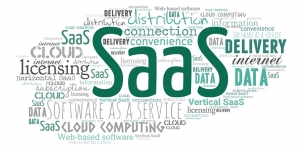In today's competitive business landscape, efficiency and integration are key to success. Managing multiple software solutions can be cumbersome, leading to inefficiencies and data silos. That's where a Software Suite for Businesses comes into play. By integrating essential tools like CRM software, project management, and accounting, businesses can enhance productivity and improve collaboration.
Here, we explore the top eight benefits of using a unified software suite for your business.
Enhanced Efficiency and Productivity
A unified software suite eliminates redundant tasks and streamlines workflows. With all tools integrated, employees spend less time switching between platforms and more time focusing on strategic tasks.
Key Advantages:
-
Automated workflows reduce manual errors.
-
Centralized dashboard improves accessibility.
-
Faster decision-making with real-time data.
Seamless Data Integration
With a unified system, all business functions share the same data repository. This ensures accuracy, consistency, and accessibility across departments.
Benefits:
-
No more duplicate data entries.
-
Improved collaboration between teams.
-
Real-time data synchronization for better insights.
Example: A CRM software integrated with sales and marketing ensures seamless customer interactions and personalized campaigns.
Cost Savings and ROI Improvement
Using multiple standalone software solutions can be expensive. A Software Suite for Businesses consolidates multiple functionalities, reducing overall costs.
Cost Benefits:
-
Lower subscription costs compared to multiple tools.
-
Reduced IT maintenance expenses.
-
Improved ROI due to increased efficiency.
Scalability and Flexibility
As businesses grow, their software needs evolve. A unified suite scales effortlessly, accommodating new users, features, and integrations.
Why It Matters:
-
Easily add new modules without disrupting operations.
-
Adapts to changing business needs.
-
Supports remote and hybrid work models.
Improved Customer Relationship Management
A well-integrated CRM software within a unified suite enhances customer interactions by providing a 360-degree view of customer data.
CRM Benefits:
-
Personalized customer experiences.
-
Streamlined customer service operations.
-
Automated follow-ups and lead nurturing.
Better Security and Compliance
Managing multiple software tools can increase security risks. A unified solution offers centralized security controls and compliance management.
Security Features:
-
Multi-layer authentication and encryption.
-
Compliance with industry standards (e.g., GDPR, HIPAA).
-
Reduced data breach risks.
Comprehensive Reporting and Analytics
A Software Suite for Businesses provides powerful analytics and reporting tools that offer insights into key business metrics.
Benefits:
-
Customizable reports for better decision-making.
-
Predictive analytics for growth strategies.
-
Centralized data visualization.
Enhanced Collaboration and Communication
A unified platform fosters teamwork by integrating communication and project management tools.
Collaboration Advantages:
-
Real-time messaging and video conferencing.
-
Shared document access and editing.
-
Task automation for improved productivity.
Example: Teams using an integrated suite experience a 30% boost in efficiency.
Conclusion
A Software Suite for Businesses offers numerous advantages, from enhanced efficiency to better customer management. By integrating CRM software and other essential tools, businesses can streamline operations, reduce costs, and drive growth.





